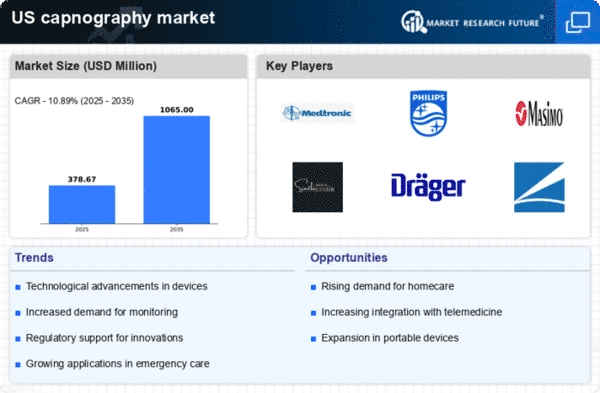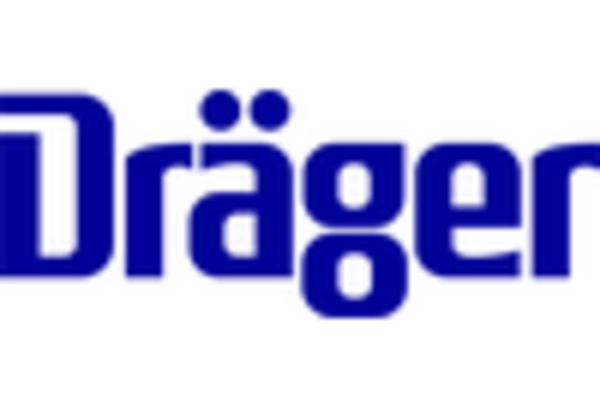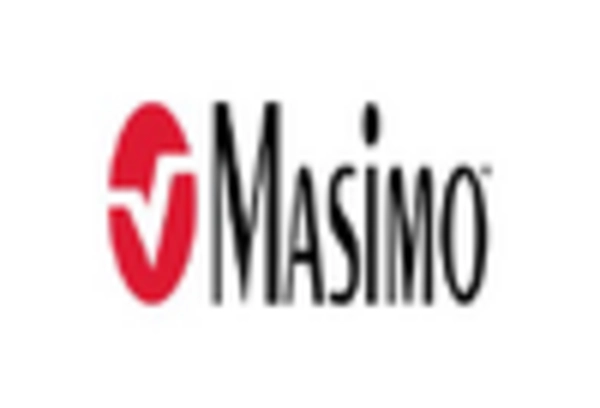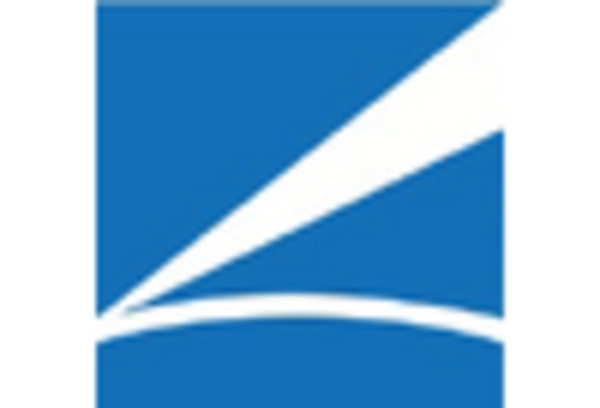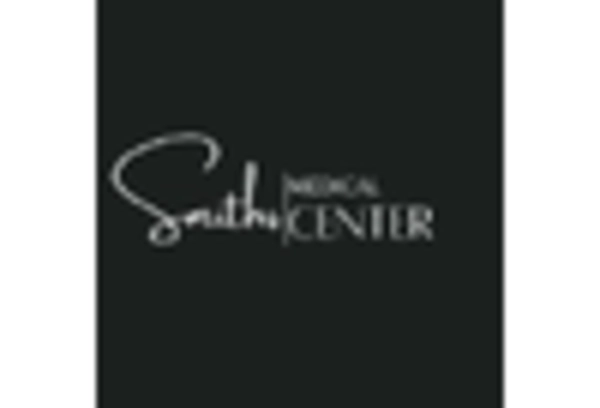Expansion of Home Healthcare Services
The expansion of home healthcare services is emerging as a significant driver for the capnography market. As the US population ages, there is a growing trend towards providing healthcare services in home settings. Capnography devices are becoming essential tools for monitoring patients with chronic respiratory conditions in their homes. The convenience and accessibility of home healthcare are appealing to both patients and providers, leading to increased adoption of capnography technology. According to industry reports, the home healthcare market is expected to grow at a CAGR of around 7% over the next five years. This growth presents a substantial opportunity for capnography manufacturers to develop portable and user-friendly devices tailored for home use. As the demand for home healthcare continues to rise, the capnography market is likely to benefit from this trend.
Rising Prevalence of Respiratory Disorders
The growing prevalence of respiratory disorders in the US is significantly influencing the capnography market. Conditions such as chronic obstructive pulmonary disease (COPD) and asthma are becoming increasingly common, necessitating effective monitoring solutions. According to recent statistics, approximately 16 million Americans are diagnosed with COPD, and millions more are undiagnosed. This rising patient population creates a substantial demand for capnography devices, which are essential for monitoring respiratory function and ensuring timely interventions. The ability of capnography to provide real-time data on carbon dioxide levels makes it an invaluable tool in managing respiratory conditions. As healthcare systems strive to improve patient outcomes, the integration of capnography into routine clinical practice is expected to expand, thereby driving growth in the capnography market.
Focus on Patient Safety and Quality of Care
The increasing emphasis on patient safety and quality of care is a pivotal driver for the capnography market. Healthcare providers are under constant pressure to enhance patient outcomes and minimize risks associated with medical procedures. Capnography is recognized as a vital tool in ensuring patient safety, particularly in settings such as anesthesia and critical care. The implementation of capnography monitoring can significantly reduce the incidence of adverse events related to respiratory failure. In the US, healthcare organizations are increasingly adopting protocols that mandate the use of capnography during sedation and anesthesia, reflecting a broader commitment to patient safety. This focus on quality care is likely to propel the demand for capnography devices, thereby fostering growth in the capnography market.
Increasing Demand for Anesthesia Monitoring
The rising demand for effective anesthesia monitoring in surgical procedures is a key driver for the capnography market. Anesthesia-related complications can lead to severe patient outcomes, thus necessitating reliable monitoring systems. In the US, the market for anesthesia monitoring devices is projected to grow at a CAGR of approximately 8% from 2025 to 2030. This growth is largely attributed to the increasing number of surgical procedures and the need for enhanced patient safety. Capnography plays a crucial role in monitoring carbon dioxide levels during anesthesia, ensuring that patients remain stable throughout their procedures. As healthcare providers prioritize patient safety, the adoption of capnography devices is likely to increase, further propelling the capnography market. This trend indicates a shift towards more sophisticated monitoring technologies in the healthcare sector.
Technological Innovations in Capnography Devices
Technological innovations are transforming the capnography market, leading to the development of advanced monitoring devices. Recent advancements include the integration of digital technologies, wireless connectivity, and enhanced data analytics capabilities. These innovations allow for more accurate and efficient monitoring of carbon dioxide levels, which is crucial in various clinical settings. The US market is witnessing a surge in demand for portable and user-friendly capnography devices, particularly in emergency medical services and outpatient settings. The introduction of smart capnography monitors that can connect to electronic health records (EHR) systems is also gaining traction. This trend not only improves patient care but also streamlines clinical workflows. As technology continues to evolve, the capnography market is likely to experience significant growth driven by these innovations.


